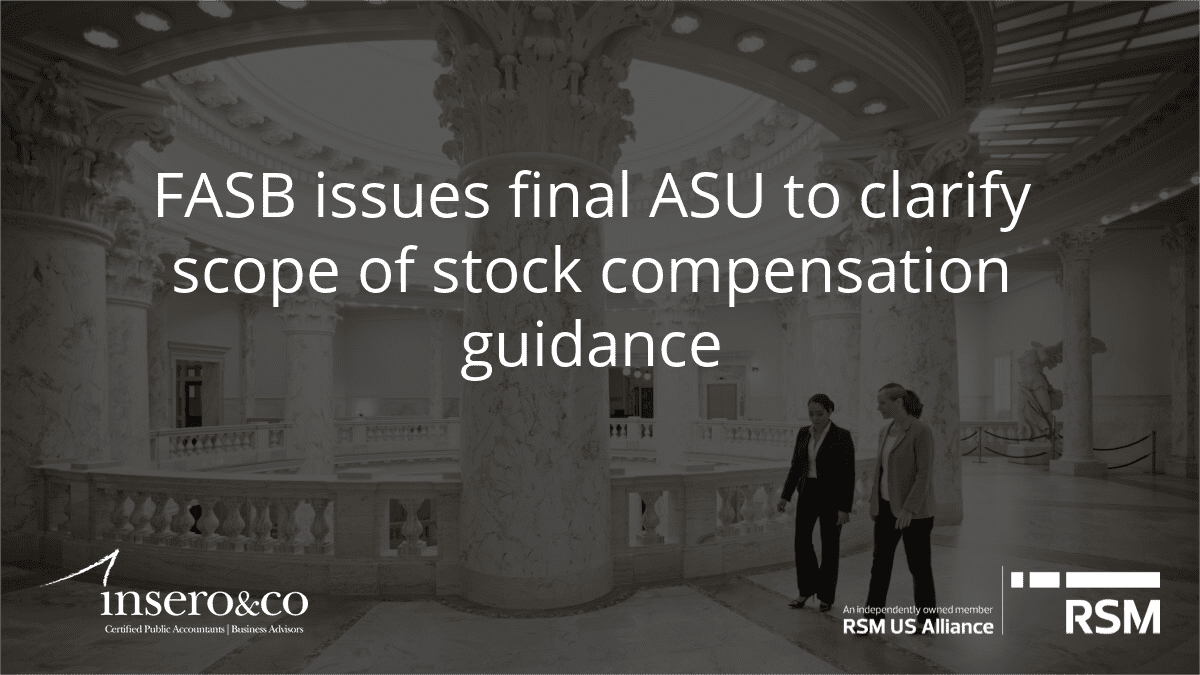TAX ALERT |
Authored by RSM US LLP
On Sept. 9, 2020, the U.S. Tax Court decided in Robin J. Fowler v. Commissioner, 155 T.C. No. 7 (2020) that an e-filed Form 1040 commences the three-year period of limitations on assessment and collections under sec. 6501(a) even though the return was rejected by the IRS for want of the taxpayer’s identity protection (IP) PIN. The unanimous Court analyzed the submission and concluded that the IRS had not published any guidance requiring an IP PIN to be part of an approved e-filing signature method (noting that their decision does not address whether the IRS may make it part of the signature method, only that it is not a requirement for the tax year at issue).
The taxpayer in Fowler, engaged a tax professional to e-file his 2013 Form 1040. The tax professional e-filed the return on Oct. 15, 2014, within an approved extension to file. The tax professional obtained signature authorization on Form 8879 to file the return as an electronic return originator (ERO). The tax professional used a preparer PIN to e-sign. The IRS rejected the submission and issued a rejection notice citing code “IND-181” for failure to provide a valid IP PIN. The return was ultimately electronically accepted on Apr. 30, 2015. On Apr. 8, 2018, the IRS issued a statutory notice of deficiency (SNOD) to the taxpayer for tax year 2013. The taxpayer argued that the SNOD was invalid as a matter of law because it was issued outside the three-year assessment statute, which expired three years from the date of the initially rejected submission. The IRS argued that the SNOD was valid because it was issued within three years from the accepted submission date. The IRS generally has three-years from the date a return is filed to assess tax imposed by the code under sec. 6501(a).
Sec. 6501(a) further states that the three-year limitation commences when a taxpayer files a “return required to be filed.” The code does not further define what constitutes a return or what constitutes proper filing. The parties conceded that the initial return was filed and so the Court focused its analysis on whether the Oct. 15, 2015 submission was a return under the well-established ‘Beard’ test, announced in Beard v. Commissioner, 82 T.C. 766, 777 (1984), aff’d, 793 F.2d 139 (6th Cir. 1986).
Under Beard, a document constitutes a return if it:
(1) purports to be a return and provides sufficient data to calculate tax liability,
(2) shows an honest and reasonable attempt to comply with the tax law, and
(3) is executed under penalties of perjury.
The Court easily concluded the first two prongs were satisfied and turned its attention to the signature. Sec. 6061(a) requires a return to be signed in accordance with prescribed forms and regulations. Reg. sec. 1.6695-1(b)(2), directs that a tax return preparer electronically sign a return in accordance forms, instructions, or other appropriate guidance. The Court noted that the 2013 Form 1040 stated that a taxpayer can sign an electronic return by using ‘a’ personal PIN—either a self- selected PIN or a practitioner PIN. Because the taxpayer in Fowler properly executed the return, and there was no other IRS guidance that would require an IP PIN as part of the signature, the Court found that the Oct. 15, 2014 submission was a proper filing of a return and commenced the three-year limitations period, even though the IRS had rejected it.
One take-away from this significant opinion is that even if a taxpayer’s timely e-filed tax return is rejected such filing can still trigger the 3-year assessment statue. In Fowler, the return was rejected because it lacked an IP PIN. However, a return can be rejected for other irregularities that might not cause the e-filed return to fail the Beard test. Thus, a rejected tax return that satisfies the Beard test can trigger the assessment statute, impact the validity of the statutory notice of deficiency and can trigger the three-year statute for filing a refund claim under sec. 6511. Taxpayers and practitioners should also take note that the Court pointed out that the IRS has no published guidance making a taxpayer’s IP PIN or custom PIN part of the signature requirement. It is possible the IRS could provide such guidance in the future.
Do you have questions or want to talk?
Call us at (800) 232-9547 or fill out the form below and we’ll contact you to discuss your specific situation.
This article was written by Evan Stone, Alina Solodchikova and originally appeared on 2020-09-11.
2020 RSM US LLP. All rights reserved.
https://rsmus.com/what-we-do/services/tax/federal-tax/tax-controversy/a-properly-and-timely-e-filed-tax-return-triggers-limitation-sta.html
The information contained herein is general in nature and based on authorities that are subject to change. RSM US LLP guarantees neither the accuracy nor completeness of any information and is not responsible for any errors or omissions, or for results obtained by others as a result of reliance upon such information. RSM US LLP assumes no obligation to inform the reader of any changes in tax laws or other factors that could affect information contained herein. This publication does not, and is not intended to, provide legal, tax or accounting advice, and readers should consult their tax advisors concerning the application of tax laws to their particular situations. This analysis is not tax advice and is not intended or written to be used, and cannot be used, for purposes of avoiding tax penalties that may be imposed on any taxpayer.
RSM US Alliance provides its members with access to resources of RSM US LLP. RSM US Alliance member firms are separate and independent businesses and legal entities that are responsible for their own acts and omissions, and each are separate and independent from RSM US LLP. RSM US LLP is the U.S. member firm of RSM International, a global network of independent audit, tax, and consulting firms. Members of RSM US Alliance have access to RSM International resources through RSM US LLP but are not member firms of RSM International. Visit rsmus.com/aboutus for more information regarding RSM US LLP and RSM International. The RSM(tm) brandmark is used under license by RSM US LLP. RSM US Alliance products and services are proprietary to RSM US LLP.

Insero & Co. CPAs, LLP is a proud member of RSM US Alliance, a premier affiliation of independent accounting and consulting firms in the United States. RSM US Alliance provides our firm with access to resources of RSM US LLP, the leading provider of audit, tax and consulting services focused on the middle market. RSM US LLP is a licensed CPA firm and the U.S. member of RSM International, a global network of independent audit, tax and consulting firms with more than 43,000 people in over 120 countries.
Our membership in RSM US Alliance has elevated our capabilities in the marketplace, helping to differentiate our firm from the competition while allowing us to maintain our independence and entrepreneurial culture. We have access to a valuable peer network of like-sized firms as well as a broad range of tools, expertise, and technical resources.
For more information on how Insero & Co. CPAs can assist you, please call (800) 232-9547.




